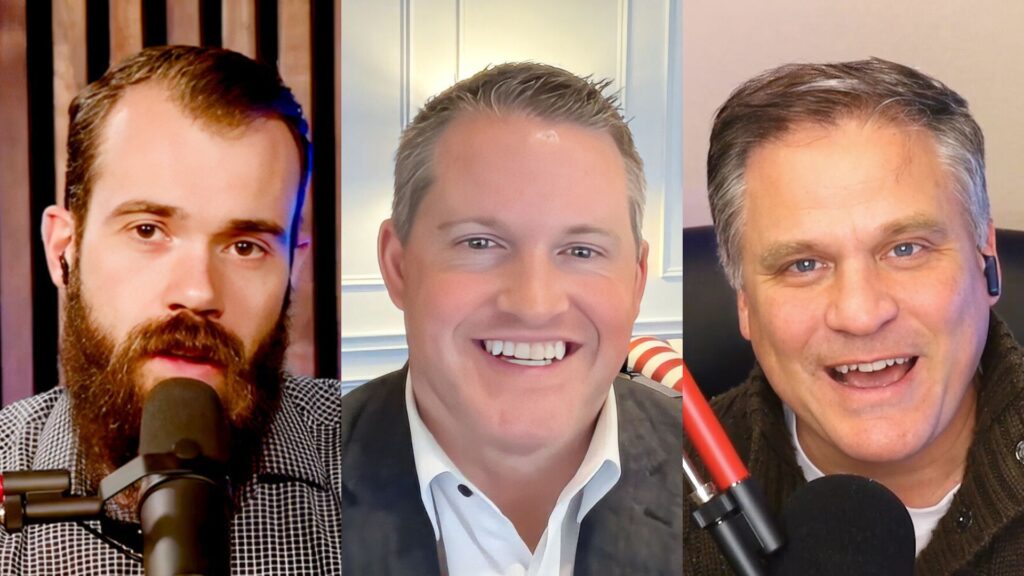On April 27, 1856, Charles Spurgeon preached a message on the above passage titled “Gospel Missions,” in which he addressed the question of why the missionary activity of his day was so relatively weak and ineffective compared to what is depicted in the New Testament.
In the sermon (#76), he identified three problems, including a lack of “apostolic men” serving as earnest, authoritative preachers of the gospel. Instead, the church leaders of Spurgeon’s day valued missionaries who were educated and nuanced but who ultimately lacked conviction.
Consider Spurgeon’s words and their application to our contemporary context.
In the first place, we have not men with apostolic zeal. Converted in a most singular way, by a direct interposition from heaven, Paul, from that time forward became an earnest man. He had always been earnest, in his sin and in his persecutions; but after he heard that voice from heaven, “Saul, Saul, why persecutest thou me?” and had received the mighty office of an apostle, and had been sent forth a chosen vessel to the Gentiles, you can scarce conceive the deep, the awful earnestness which he manifested.
Whether he did eat, or drink, or whatsoever he did, he did all for the glory of his God; he never wasted an hour; he was employing his time either in ministering with his own hands unto his necessities, or else lifting those hands in the Synagogue, on Mars Hill, or anywhere where he could command the attention of the multitude. His zeal was so earnest, and so burning, that he could not (as we unfortunately do) restrain himself within a little sphere; but he preached the Word everywhere. It was not enough for him to have it handed down that he was the Apostle of Pisidia, but he must go also to Pamphylia; it was not enough that he should be the great preacher of Pamphylia and Pisidia, but he must go also to Attalia; and when he had preached throughout all Asia, he must needs take ship to Greece, and preach there also. I believe not once only did Paul hear in his dream the men of Macedonia saying, “Come over and help us,” but every day and hour he heard the cry in his ears from multitudes of souls, “Paul, Paul, come over and help us.” He could not restrain himself from preaching. “Woe is unto me” he said “if I preach not the gospel. God forbid that I should glory save in the cross of Christ.”
Oh! if you could have seen Paul preach, you would not have gone away as you do from some of us, with half a conviction, that we do not mean what we say. His eyes preached a sermon without his lips, and his lips preached it, not in a cold and frigid manner, but every word fell with an overwhelming power upon the hearts of his hearers. He preached with power, because he was in downright earnest. You had a conviction, when you saw him, that he was a man who felt he had a work to do and must do it, and could not contain himself unless he did do it. He was the kind of preacher whom you would expect to see walk down the pulpit stairs straight into his coffin, and then stand before his God, ready for his last account.
Where are the men like that man? I confess I cannot claim that privilege, and I seldom hear a solitary sermon which comes up to the mark in earnest, deep, passionate longing for the souls of men.
We have no eyes now like the eyes of the Saviour, which could weep over Jerusalem; we have few voices like that earnest impassioned voice which seemed perpetually to cry, “Come unto me, and I will give you rest.” “O Jerusalem, Jerusalem, how often would I have gathered thee as a hen gathereth her chickens under her wings, but ye would not.”
If ministers of the gospel were more hearty in their work of preaching; if, instead of giving lectures and devoting a large part of their time to literary and political pursuits, they would preach the Word of God, and preach it as if they were pleading for their own lives, ah! then, my brethren, we might expect great success; but we cannot expect it while we go about our work in a half-hearted way, and have not that zeal, that earnestness, that deep purpose which characterized those men of old.
Then, again, I take it we have not men in our days who can preach like Paul—as to their faith. What did Paul do? He went to Philippi; did he know a soul there? Not one. He had his Master’s truth, and he believed in the power of it. He was unattended and devoid of pomp, or show, or parade; he did not go to a pulpit with a soft cushion in it to address a respectable congregation, but he walked through the streets and began to preach to the people. He went to Corinth, to Athens, alone, single-handed, to tell the people the gospel of the blessed God. Why? Because he had faith in the gospel and believed it would save souls, and hurl down idols from their thrones. He had no doubt about the power of the gospel; but now-a-days, my brethren, we have not faith in the gospel we preach.
How many there are who preach gospel, which they are afraid will not save souls; and, therefore, they add little bits of their own to it in order, as they think, to win men to Christ! We have known men who believed Calvinistic doctrines, but who preached Calvinism in the morning and Arminianism in the evening, because they were afraid God’s gospel would not convert sinners, so they would manufacture one of their own.
I hold that a man who does not believe his gospel to be able to save men’s souls, does not believe it all. If God’s truth will not save men’s souls, man’s lies cannot; if God’s truth will not turn men to repentance, I am sure there is nothing in this world that can. When we believe the gospel to be powerful, then we shall see it is powerful. If I walk into this pulpit, and say, “I know what I preach is true,” the world says I am an egotist. “The young man is dogmatical.” Ay, and the young man means to be; he glories in it, he keeps it to himself as one of his peculiar titles, for he does most firmly believe what he preaches. God forbid that I should ever come tottering up the pulpit stairs to teach anything I was not quite sure of, something which I hoped might save sinners, but of which I was not exactly certain.
When I have faith in my doctrines, those doctrines will prevail, for confidence is the winner of the palm. He who hath courage enough to grasp the standard, and hold it up, will be sure enough to find followers. He who says, “I know,” and asserts it boldly in his Master’s name, without disputing, will not be long before he will find men who will listen to what he says, and who will say, “This man speaks with authority, and not as the Scribes and Pharisees.
That is one reason why we do not succeed: we have not faith in the gospel. We send educated men to India in order to confound the learned Brahmins.1 Nonsense! Let the Brahmins say what they like, have we any business to dispute with them? “Oh, but they are so intellectual and so clever.” What have we to do with that? We are not to seek to be clever in order to meet them. Leave the men of the world to combat their metaphysical errors; we have merely to say, “This is truth: he that believeth it shall be saved, and he that denieth it shall be damned.” We have no right to come down from the high ground of divine authoritative testimony; and until we maintain that ground, and come out as we ought to do, girded with the belt of divinity—preaching not what may be true, but asserting that which God has most certainly revealed—we shall not see success. We want a deeper faith in our gospel; we want to be quite sure of what we preach.
Brethren, I take it we have not the faith of our fathers. I feel myself a poor driveling thing in point of faith. Why, methought sometimes I could believe anything; but now a little difficulty comes before me, I am timid, and I fear.
It is when I preach with unbelief in my heart that I preach unsuccessfully; but when I preach with faith and can say, “I know my God has said, that in the self-same hour he will give me what I shall preach, and careless of man’s esteem, I preach what I believe to be true,” then it is that God owns faith and crowns it with his own crown.
1. The highest caste in Hinduism, traditionally Hindu priests and teachers.




